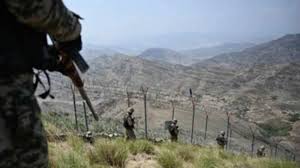
By ISPR
ISLAMABAD: In a significant escalation of cross-border military action, security forces launched a series of targeted strikes on militant camps in Afghanistan’s Paktika province, resulting in the deaths of more than 70 terrorists affiliated with the Gul Bahadur faction.
The operations, which unfolded under the cover of night on 17 October, were described by officials as “effective strikes” that successfully dismantled key hideouts used by the group.
The timing of the offensive carried a heavy resonance, coming on the very same day that the same militant faction was blamed for a devastating vehicle-borne explosion in Khadi, located in North Waziristan.
That earlier attack had shattered the local peace, claiming the lives of three women, two children, and a soldier, a stark reminder of the human cost of the ongoing conflict. According to security sources who provided a detailed list of the deceased, the retaliatory strikes inflicted a severe blow to the group’s leadership.
Among those reported killed was a prominent commander known as Farman, who also operated under the nom de guerre Al-Karama. The strikes also claimed several other senior figures, including Sadiqullah Dawar, Ghazi Madakhil, and Muqarab.
In a particularly significant development, the alleged ringleader Gulaab, infamously known as Dewana, was reported to have been eliminated. The list of casualties extended to Fazal Rahman, who was described as a close relative of the faction’s overarching leader, Gul Bahadur.
The language used by Pakistani authorities underscored the depth of the schism, with officials referring to the Tehreek-e-Taliban Pakistan (TTP) and its allied factions such as the Gul Bahadur group as “khawarij,” a historically charged term meaning “renegades” or “outsiders.”


